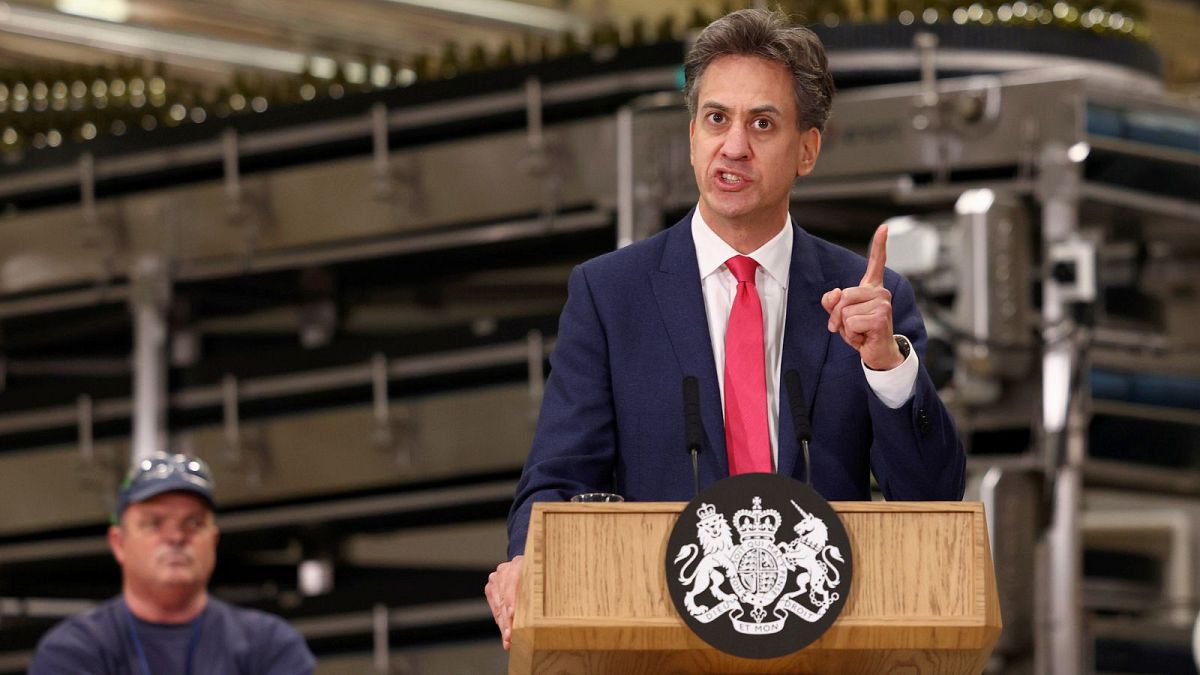Solar panels made with slave labour in China won’t be used by the UK’s new state-owned energy company, the government announced today.
GB Energy was launched by Labour in July, in a bid to boost renewables and lower energy bills, and will be formally established when the Great British Energy Bill is passed by Parliament.
After weeks of debate on the issue, energy secretary Ed Miliband is introducing an amendment to the legislation to try and ensure GB Energy’s supply chains are free of slavery.
“Unfortunately, there’s a problem right the way throughout the renewables sector with state-imposed forced labour in China,” Luke de Pulford, executive director of the Inter-Parliamentary Alliance on China (Ipac) told BBC Radio 4’s Today programme.
“They have labour transfer schemes where the government conscripts, very often ethnic minorities, and forces them to work against their will, and sadly, many such workers are placed within renewable industry in China.”
Chinese solar panels tied to exploitation of Uyghur Muslims
Around 45 per cent of the world’s supply of polysilicon – a core component in solar panels – comes from China’s Xinjiang region. It is produced through the systemic exploitation of the Uyghur ethnic minority living here, according to an investigation by researchers at the UK’s Sheffield Hallam University.
Official Chinese government documents detail the “placement” of 2.6 million “minoritised” citizens in jobs in farms and factories in Xinjiang and elsewhere through state-sponsored “surplus labour” and “labour transfer” initiatives.
The 2021 report, In Broad Daylight, found significant evidence that “labour transfers are deployed in the Uighur Region within an environment of unprecedented coercion, undergirded by the constant threat of re-education and internment.
“Many Indigenous workers are unable to refuse or walk away from these jobs, and thus the programmes are tantamount to forcible transfer of populations and enslavement.”
Do the UK and EU use these solar panels?
Although alternatives are emerging, almost all solar modules rely on polysilicon, which is extracted from mined quartz.
The UK imports more than 40 per cent of its solar PV from China, according to HMRC data.
Asked how difficult it will be for the government to increase its use of renewables without using Chinese slave labour, de Pulford acknowledged it will require “a transition” in order to “diversify” solar supplies.
“But it’s not impossible and companies are, I think, slowly inching towards a better place – we have to find a better way of doing it, that doesn’t mean that we have a green transition reliant upon Uyghur slavery,” he told the BBC.
Fatih Birol, leader of the International Energy Agency, told the broadcaster: “I really salute the UK government’s decision.”
He added that the materials for green technology are important but “should really be produced in a socially and environmentally acceptable way”.
The EU has previously taken steps to keep renewable components made with slave labour out of its supply chains. In November, the European Council moved to ban products in the Union market that are made using forced labour.

